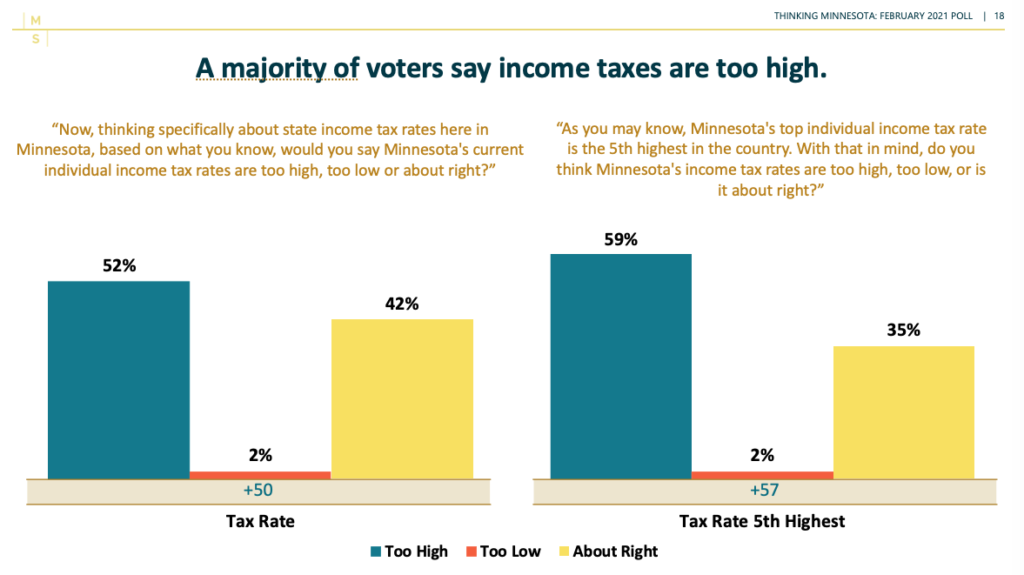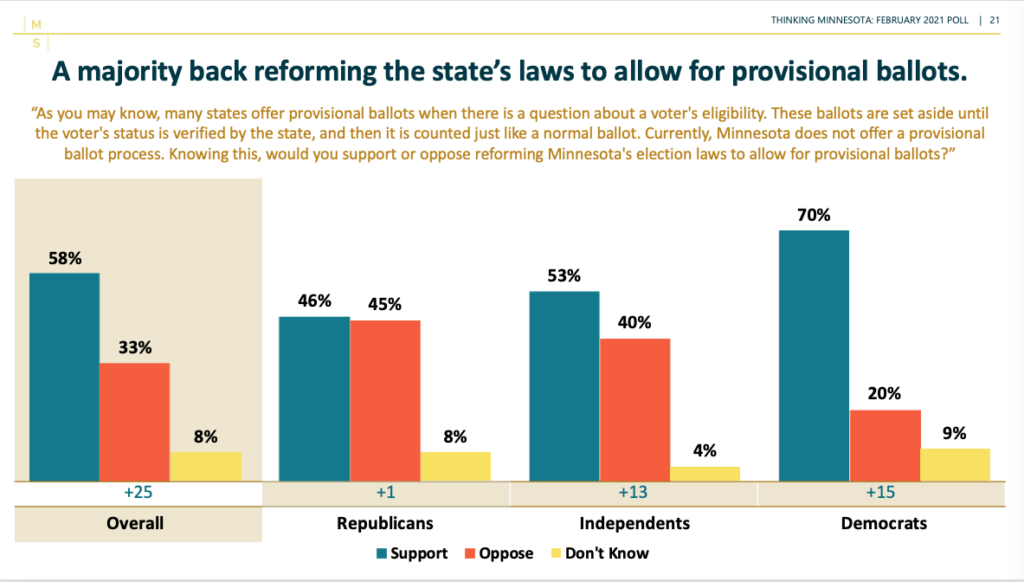Capitol Watch: Five weeks left in the 2021 session
Legislators returned this week from their Easter/Passover break and things really started moving at the Capitol. The House and Senate rolled out massive spending bills and began moving them through committee. The press and lobbyists complained about a lack of transparency in the process as huge bills appeared overnight with hundreds of provisions spending billions of dollars. They have a point, and it will only get worse as the chief negotiators for the Senate, House and Governor go behind closed doors at the end of session.
With five weeks to go in the 2021 session, here are five things you need to know:
1. There is too much money
State government spends (and wastes) a lot of money every year. When there is a budget surplus, all efforts to rein in spending or stop waste and fraud disappear. Minnesota Management and Budget reported in late February a $1.6 billion surplus for the next two-year budget. That’s on top of a healthy state rainy day fund of $2.3 billion.
But wait, there’s more: the American Rescue Plan is sending another $2.6 billion to Minnesota to help recover from the pandemic. That’s on top of the $2.1 billion sent directly to cities and counties, $1.3 billion sent directly to schools and $6.3 billion sent directly to Minnesotans in the form of stimulus checks.
The budgets released by the Governor, House and Senate all plan to spend more money in the next biennium. Fiscal restraint will have to wait.
2. The Democrats and Gov. Walz still want to raise your taxes
Even with the budget surplus, Walz and House Democrats are still holding on to their tax increase proposals. But not seriously. It’s all posturing for the end of session budget negotiation. Senate Republicans will not vote for any tax increases in 2021 so the tax increases will be “traded” for some concession at the end of session. Unfortunately, that trade will likely involve more spending in some area of the budget.
Gov. Walz scaled back his tax increases after the budget picture improved, but both he and House Democrats are still proposing a new 5th tier on the income tax they believe will bring in $1 billion in new revenue.
Our latest Thinking Minnesota poll returned a remarkable statistic – almost no one in Minnesota thinks income taxes are too low. Most (52%) think they are too high; some think they are about right; but no one thinks they are too low. When told our income taxes are 5th highest in the nation, opposition grows to 59%.

As we wrote about here, the Walz/Democrat tax increases will not bring in the revenue they expect, even if they could convince the Senate to pass them.
3. What will Walz do with the American Rescue Plan money from Washington?
The state spends a lot of money from the federal government every year, and the normal process is to have the legislature vote on those allocations. That’s how it works with annual federal appropriations like gas tax revenue and money for special education. When a federal grant arrives during the legislative session, the House and Senate are supposed to have a say in how it’s allocated, like they did in 2019 with the Help America Vote Act (HAVA) money. When the legislature is not in session, the governor has a lot more control over how that money is spent.
This becomes a big deal when Congress allocates $2.6 billion to Minnesota like they did this year. Republicans in the Senate want to control how that money is spent but they don’t have much leverage once the session ends. Gov. Walz knows this and is in no hurry to tell the legislature how he plans to spend that money. That could (and should) become part of the end of session negotiation. Hopefully, Walz won’t purchase another morgue.
4. There are big differences in transportation funding
House Democrats rolled out a transportation bill this week that is full of tax and fee increases. The House plan would:
- Automatically increase the gas tax every year by indexing it to inflation
- Raise the sales tax in the metro area to pay for transit projects
- Increase tab fees and create a new luxury vehicle surcharge (why do I feel like my 2011 Hyundai Sonata will be considered a “luxury” vehicle?)
Taxes and fees related to cars and driving are very unpopular and will have no support in the Senate. Gov. Walz proposed a 20-cent increase to the gas tax in 2019 and quickly abandoned it after negative public feedback.
The Senate transportation bill has no tax or fee hikes and instead increases the share of dedicated revenue from the auto parts sales tax to roads and bridges. Senate Republicans pushed hard to get the auto parts sales tax dedication to the current 49%, and now propose to increase it to 60%. The Senate bill would also allow Minnesotans to purchase their license tabs and replacement license plates from a fully automated kiosk, responding to frustration over the recent MNLARS debacle.
5. Election reforms like provisional balloting are still moving
Senate Republicans included provisional balloting in their State Government spending bill, and our Thinking Minnesota poll found 58% of Minnesotans agree with this approach. Secretary of State Steve Simon is demagoguing the issue saying it will end same day registration as we know it, but that’s not true. Provisional balloting is the law in 47 states and simply sets aside ballots for same day registrants if they can’t prove eligibility on election day. Our current system counts all the votes on election day, even if further follow-up proves a voter is ineligible.
